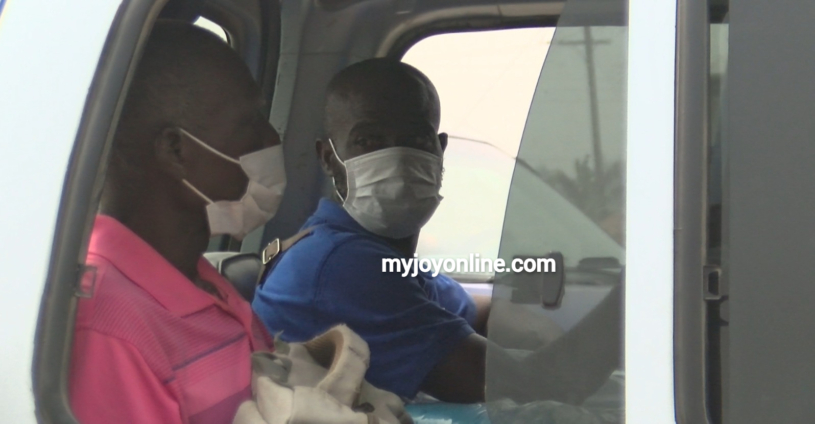If you abandoned your masks, it’s time to grab them as Accra earns the unenviable title of one of the cities in the world with the worst air quality.
IQAir, an air quality monitoring centre with more than a dozen sensors around the country, has ranked Accra's air quality as the worst, surpassing Mumbai in India and Wuhan in China.
Researchers are warning that this year’s harmattan is about to get worse, with the dust season expected to peak in the coming days.
Analysts with Clean Air Fund, including Victoria Owusu Tawiah, expressed concern, stating that "during February, we reach the peak of the harmattan.
"Mostly, the dust levels and concentration are quite high in February. Getting to the latter parts of February, conditions are expected to improve, thereby improving air quality over Accra."
Joshua Asamoah, a Senior Meteorologist with the Ghana Meteorological Agency, emphasises the variability of seasons, noting that "when we compare this year to that of last year, we can see we are getting the peak somewhere around late January into February."
The World Health Organisation (WHO) underscores the severe impact of air pollution on health, especially PM2.5 (tiny particles in the air).
Annual average concentrations of PM2.5 should not exceed 5 μg/m3, yet Accra's current situation surpasses these limits. Ghana’s air quality predicament is significantly attributed to the ongoing harmattan season, exacerbating pollution levels.
As Accra braces for the intensifying harmattan, residents are urged to take immediate precautions. With experts advising on the need for face masks, especially for children, and the importance of indoor activities, the city is on high alert for the challenges posed by this year’s relentless harmattan.
Dr. Sandra Kwarteng Owusu, a Paediatric Pulmonologist and air pollution advocate, advises parents and caregivers to "keep the children indoors as much as possible.
"If they need to come outdoors, we encourage them to wear face masks."
She underscores the impact of the current humidity, stating, "A lot of children are coming down with respiratory tract sections.
"So we need to encourage caregivers and parents to hydrate children adequately, but we can wear the face mask."
This story was a collaboration with New Narratives. Funding was provided by the Clean Air Fund. The funder had no say in the content of the story.
Latest Stories
-
Mahama vows to create an agro-processing zone in Afram Plains
6 mins -
Political parties should plan for losses, not just wins – IGP advises
7 mins -
524 Diasporan Africans granted Ghanaian citizenship in ceremony
9 mins -
Mahama urges Afram Plains North residents to avoid ‘skirt and blouse’ voting
11 mins -
Asantehene receives more 19th century gold ornament and regalia
18 mins -
Hohoe Ghana Blind Union organises training for members ahead of Election 2024
24 mins -
Alan Kyerematen reveals his future plans for Ghanaian Health professionals
25 mins -
AAIN empowers women and small enterprises in Upper East Region through SHINE project
26 mins -
Akufo-Addo leads nationwide commissioning of 80 educational projects
33 mins -
Ghana and Seychelles strengthen bilateral ties with focus on key sectors
1 hour -
National Elections Security Taskforce meets political party heads ahead of December elections
1 hour -
Samsung’s AI-powered innovations honored by Consumer Technology Association
1 hour -
Fugitive Zambian MP arrested in Zimbabwe – minister
2 hours -
Town council in Canada at standstill over refusal to take King’s oath
2 hours -
Trump picks Pam Bondi as attorney general after Matt Gaetz withdraws
2 hours

